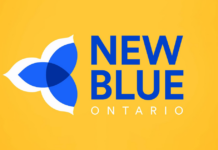A research report by the Samara Centre for Democracy says “anti-woke” Ottawa trustee candidates Shannon Boschy and Chanel Pfahl received the greatest proportion of abusive tweets during last fall’s municipal election campaign.
Samara’s Online Abuse in Local Elections report says 33% of the 2221 tweets received by Boschy during the municipal campaign period were abusive, while 32% of the 15938 tweets received by Pfahl were abusive. They had the highest proportion of any Ottawa municipal candidate.
In third place was left-wing trustee candidate Dr. Nili Kaplan-Myrth, with 29% of tweets she received being deemed abusive. The number of abusive tweets received by Kaplan-Myrth was however greater, amid her having a larger Twitter following than Boschy and Pfahl combined.
Samara used five categories to determine if a tweet was abusive; toxicity, insults, threats, sexual explicity and identity attacks.
Pfahl and Boschy received a great proportion of identity attacks. 16% of the tweets received by Pfahl and 15% of the tweets received by Boschy are considered by Samara to be identity attacks.
Samara said it assessed a tweet as an identity attack “whether the attack is directed at the candidate or at another individual or group.” It noted that in the case of Pfahl and Boschy, a significant portion of the identity attacks they received weren’t targeting their demographic characteristics, but rather their opposition to gender ideology and Critical Race Theory.
“Tweets that described these candidates as transphobic, racist, or similar terms were evaluated as identity attacks,” notes Samara.
SCREENSHOT: Examples of abusive tweets received by Pfahl and Boschy deemed to be identity attacks by Samara. Profane language was blacked out by True North. Samara Centre for Democracy.
Samara added that “many tweets SAMbot labeled as identity attacks were sent in support of these candidates and their policies. For example, when a candidate was tagged in a tweet containing abusive language towards trans people, SAMbot registered that tweet as an identity attack towards that same candidate.”
“The category of identity attacks, therefore, is a complex one, and doesn’t necessarily imply that a candidates’ specific identity was attacked,” it adds. “Instead it indicates that conversations about identities – their expression and related policies – are manifesting a significant volume of abuse, which is in turn shaping the substance, tone and experience of political conversations online.”
Speaking to True North, Pfahl said, “I think I received a lot of threatening or abusive tweets because I represent a threat to a worldview that many have embraced. I disagree with the notion that white people are ‘privileged’, or that black people are ‘oppressed’ simply due to their skin colour. I also don’t think it is appropriate to teach children that they might have been born into the wrong body, and that it is all about how they ‘feel’ inside.”
“We’re the biggest threat, to be honest,” echoed Boschy. “We knew that the school board elections would be the hottest ticket.”
Boschy also told True North he had to get security for his house during the campaign, amid hate from trans activists. “People posted pictures of my house and of my car and made comments… that was a little frightening. More so for my wife than I”
Pfahl also told True North “I received many hundreds of insults and many threats. In addition, about 40% of my election signs were either vandalized or stolen.” However, she added, “I did my best not to take it personally. Having to face hostile behaviour seems to come with the territory of politics these days, and I knew this going into the election.”
“I think I made a good choice to run,” noted Boschy.
The Samara Centre says its project uses “SAMbot” AI “for civic inquiry in order to better understand technology’s influence on our democratic culture.” The project was done with the collaboration of AI firm Aretolabs.
In Ottawa, Samara tracked 112 accounts and analyzed 257.000 tweets between August 20, 2022 and October 24, 2022. In total, it found 54,000 abusive tweets. Accounts tracked included mayoral, councillor and trustee candidates, but a high proportion of abusive tweets were attributed to trustee candidates.
Nationally, Samara analyzed municipal elections between August and November 2022; including Vancouver, Surrey, Brampton, Toronto, Winnipeg, Yellowknife, and Charlottetown.
The Samara Centre for Democracy’s full report for the Ottawa municipal election can be found here.






















